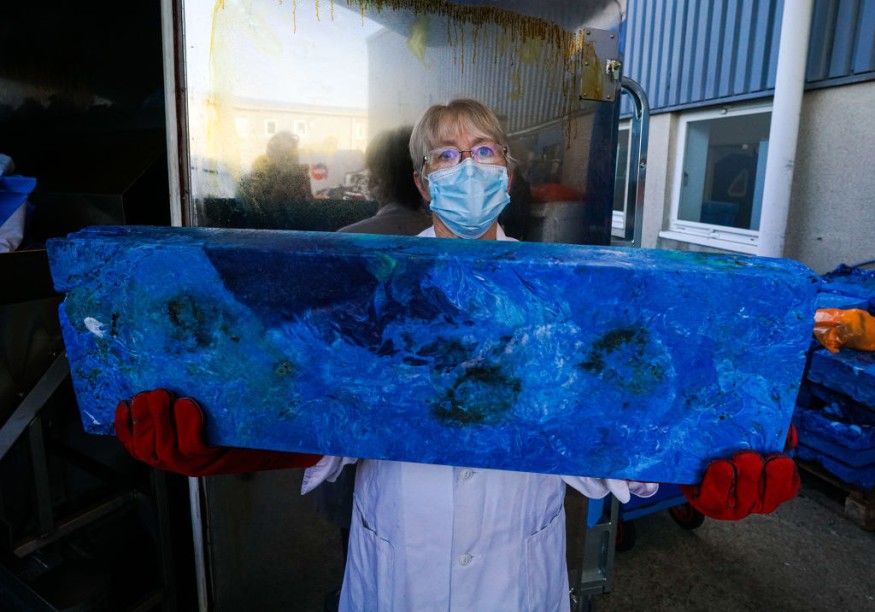An estimated 129 billion single-use face masks are disposed of around the world every month, according to the American Chemical Society. That number is a lot to add to the current problems in plastic pollution.
Disposable face masks used to prevent transmission of diseases, particularly COVID-19 in this time of the pandemic, is made of elastic and metallic polypropylene plastic material that is thrown in the trash after use and ends up in landfills.
Florida News Times reported that many of these masks are also often seen cluttered on the streets, bodies of water, such as seas, oceans, and rivers, and could also harm the wildlife.
Due to the growing concerns of plastic pollution caused by single-use face masks, environmental groups n different nations have started recycling them and turning the used face masks into new materials.

Used Face Masks Recycled and Reborn Into New Materials
Recycling face masks is one of the ways that environmental groups have thought to reduce plastic wastes during the pandemic. For instance, several hospitals in the United Kingdom have acquired a compactor made by Cardiff-based Thermal Compaction Group that melts personal protective equipment, like gowns and surgical masks, and turns them into blue slabs.
These blue slabs are the raw materials for making new and useful objects. Moreover, a similar initiative is being practiced in France. Recycling company Tri-o et Greenwishes picks up face masks tossed in special bins allocated for disposable masks that are used by some 30 customers, such as hospitals in Paris, TV Network TF1, and building material giant Saint-Gobain.
"We had a lot of demand from our clients" to offer mask recycling services, said Tri-o et Greenwishes president Matthieu de Chanaleilles, according to Phys.org.
They charge an amount of 250 euros ($300) per month to collect the trash from these companies. Then at its recycling plant, staff wear protective gears to sort through the trash of paper tissues, gloves, and cups that are sometimes thrown in mask bins accidentally. The staff is standing behind plexiglass as added protection. Then, they spray the sorted trash with disinfectant.
The company uses ultraviolet lamps to disinfect the sorting area and masks are kept in quarantine for one week before they are processed into new materials.
Afterward, two French companies will shred the masks and disinfect them before extracting the polypropylene and turn them into pebbles used to make car floor carpets or other plastic materials used in a car.
So far, Tri-o et Greenwishes has recycled one tone of disposable face masks and hopes to increase it by 20 tons by the end of the year. Their efforts have significantly contributed to the drop in the number of face masks in the ocean.
ALSO READ : Discarded Face Masks and PPEs End Up in Oceans
Recycled Masks For Construction Cement
Researchers at the Royal Melbourne Institute of Technology in Australia are experimenting with other ways to recycle face masks after being inspired by seeing a litter of face masks on the streets.
They are investigating how to turn single-use face masks into construction cement. Around three million masks are estimated to be needed to at least make half a mile (one kilometer) of road.
"The facemask have a good tensile strength; they can provide tensile strength to the concrete, which is very important," Mohammad Saberian, a post-doctoral research fellow at RMIT University, said according to The Strait Times. "We're currently looking for partners to use the face masks in real-world applications and to make kind of a pilot road," he added.
Several industries have already expressed their interest in the project and the team is now applying for funding to continue their experiment that could probably take two years.
RELATED ARTICLE : Ocean Garbage Turns Into Fashionable Sunglasses
Check out more news and information on Plastic Pollution on Science Times.
© 2026 ScienceTimes.com All rights reserved. Do not reproduce without permission. The window to the world of Science Times.










